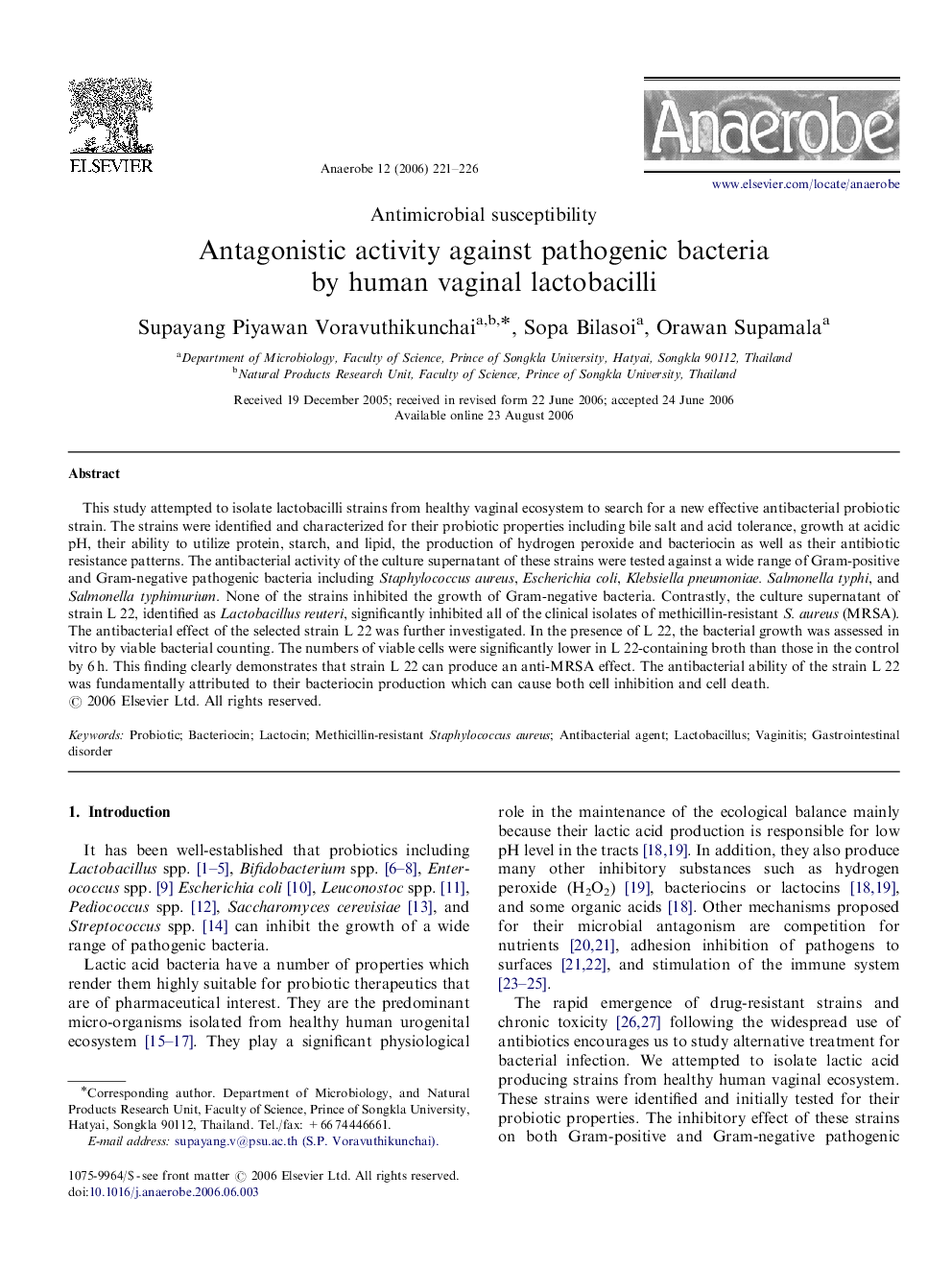| Article ID | Journal | Published Year | Pages | File Type |
|---|---|---|---|---|
| 3395948 | Anaerobe | 2006 | 6 Pages |
This study attempted to isolate lactobacilli strains from healthy vaginal ecosystem to search for a new effective antibacterial probiotic strain. The strains were identified and characterized for their probiotic properties including bile salt and acid tolerance, growth at acidic pH, their ability to utilize protein, starch, and lipid, the production of hydrogen peroxide and bacteriocin as well as their antibiotic resistance patterns. The antibacterial activity of the culture supernatant of these strains were tested against a wide range of Gram-positive and Gram-negative pathogenic bacteria including Staphylococcus aureus, Escherichia coli, Klebsiella pneumoniae. Salmonella typhi, and Salmonella typhimurium. None of the strains inhibited the growth of Gram-negative bacteria. Contrastly, the culture supernatant of strain L 22, identified as Lactobacillus reuteri, significantly inhibited all of the clinical isolates of methicillin-resistant S. aureus (MRSA). The antibacterial effect of the selected strain L 22 was further investigated. In the presence of L 22, the bacterial growth was assessed in vitro by viable bacterial counting. The numbers of viable cells were significantly lower in L 22-containing broth than those in the control by 6 h. This finding clearly demonstrates that strain L 22 can produce an anti-MRSA effect. The antibacterial ability of the strain L 22 was fundamentally attributed to their bacteriocin production which can cause both cell inhibition and cell death.
